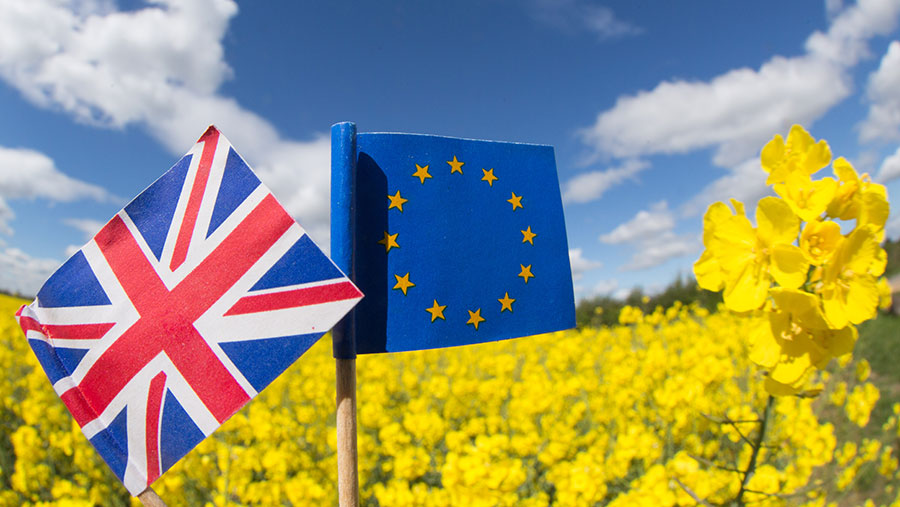Brexit must deliver for farming, Theresa May told
 © Tim Scrivener
© Tim Scrivener More than 100 food and farming organisations have joined forces to call for a Brexit deal that works for UK agriculture.
The UK Food Supply Chain Manifesto sets out key principles they believe can help ensure Brexit is a success for the supply of food in the UK.
It has been drawn up by organisations representing farmers producing the raw ingredients and their suppliers, right through to manufacturers and retailers.
See also: Farm support phase-out must be fair for all – NFU
Published on Monday (28 May), the document sets out the need for positive outcomes on trade, labour, regulation and domestic agricultural policy.
Manifesto principles
The manifesto calls on the government to:
- Maintain free and frictionless trade with the EU, and secure the benefits of existing EU preferential trade arrangements, at least until government can replace them with acceptable alternative arrangements
- Ensure ongoing access to an adequate supply of permanent and seasonal labour
- Continue to promote food production through agricultural policy alongside our existing high environmental, health and animal welfare standards
- Ensure businesses operate under an efficient and proportionate regulatory system that is centred on scientific evaluation and that incentivises innovation and competitiveness.
It was signed by representatives from 105 organisations and sent to prime minister Theresa May – as well as other key cabinet ministers.
Organisations
Signatories include the NFU, Country Land and Business Association, National Association of Agricultural Contractors, and the Tenant Farmers Association.
NFU Scotland, NFU Cymru and the Ulster Farmers’ Union are also signatories.
Farm suppliers include the Agricultural Industries Confederation, Agrii, CF Fertilisers, Elsoms Seeds, KWS, Limagrain, Procam, Ses VanderHave, the Wynnstay Group and Yara.
Speaking on behalf of the signatories, NFU president Minette Batters said it was vital Brexit did not undermine the UK’s food production and supply sectors.
Ms Batters warned: “A Brexit that fails to champion UK food producers, and the businesses that rely on them, will be bad for the country’s landscape, the economy and critically our society.
“Conversely, if we get this right, we can all contribute to making Brexit a success for producers, food businesses and the British public.”
Benefits of success
Doing so would improve productivity, create jobs and establish a more sustainable food supply system, said Ms Batters.
The food and farming sector was worth at least £112bn to the UK economy and employed about four million people – meeting 61% of the nation’s food needs.
Farmers and food producers provided high-welfare, traceable and affordable food while caring for three-quarters of the countryside and supporting tourism worth £21bn.
Ms Batters said: “When it comes to the nation’s ability to produce food, we believe it is critical the different elements of Brexit are carefully considered by all government departments.”
The prime minister had herself spoken about the importance of supporting the sector – and the 105 organisations would be looking to ensure the government’s objectives achieved this.
